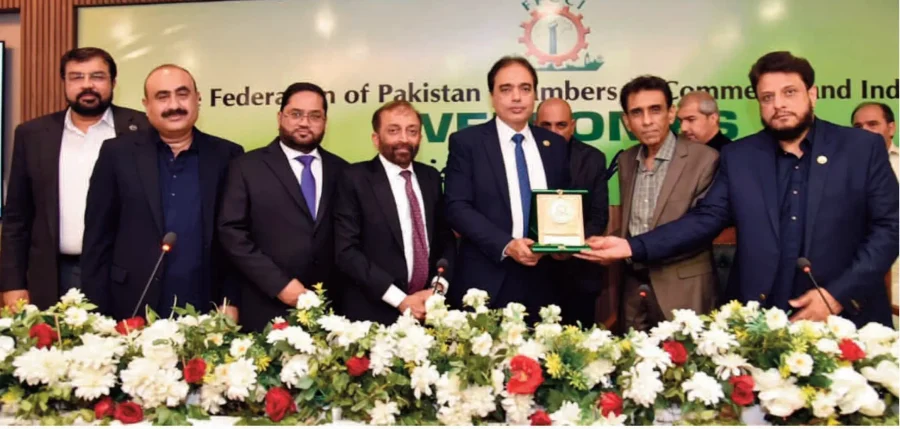Dr. Khalid Maqbool Siddiqui, convener of MQM Pakistan, and Dr. Farooq Sattar, senior deputy convener, expressed deep concerns over various economic issues. MQM Pakistan highlighted issues such as indirect taxation, discriminatory tax levies in urban centers, delays in the K-IV water project, substantial annual losses of state-owned enterprises (SOEs), lack of progress in the privatization of Pakistan Steel Mills (PSM), and shortages of utilities in industrial areas.
Dr. Farooq Sattar explained MQM Pakistan’s economic manifesto, focusing on improving the human capital index, providing health and education, removing obstacles to setting up new industries, establishing industry-academia linkages, and providing IT and technical training for the youth. He criticized the impact of Section 7-E in the Income Tax Ordinance, stating it led to a significant drop in taxes from the construction sector.
Acting FPCCI President, Saquib Fayyaz Magoon, appreciated the visit by MQM Pakistan leaders and their presentation of the economic manifesto. Magoon emphasized the importance of political parties consulting with FPCCI before formulating economic policies, highlighting that the business community can offer valuable grass-root level information and advice. Magoon also addressed concerns about Karachi’s livability and waste management issues, stressing the need for collaborative efforts to improve the city’s conditions.
He acknowledged the positive initiatives by the Special Investment Facilitation Council (SIFC) and encouraged MQM Pakistan to incorporate those initiatives into their economic manifesto.










